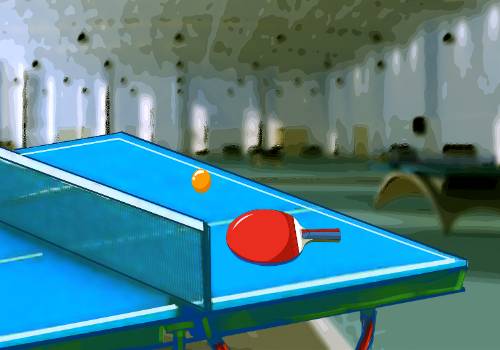英语最全的比较级的用法总结归纳_附加练习
英语比较级和最高级的用法归纳
形容词:
是修饰名词(人或事物),表示名词的性质,特征或属性一种词类。它在句中作定语、表语和宾语补足语。副词:用来修饰动词、形容词及其他副词的词叫副词。副词在句中多作状语.
形容词和副词的三个比较等级:
1. 原级,也就是原形;
 【资料图】
【资料图】
2. 比较级,表示“较……”或“更……”的意思(用于两者之间比较);
3. 最高级,表示“最……”的意思 (用于三者或三者以上的比较)。
比较级及最高级名言
①Blood is thicker than water. 血浓于水。
②Learning makes the wise wiser and the fool more foolish.
学问使聪明人更聪明,使愚人更愚。
③A good fame is better than a good face.
美名胜过美貌。
④Don’t try to look bigger and better than you really are.
不要装得比自己真实形象更高大,更完美。
⑤The deepest feeling always shows itself in silence. 最深沉的爱往往表现为沉默。
⑥The greatest talker are the least doers.
理论的巨人,行动的矮子。
⑦Science is the most important and the most beautiful thing that man ever requires.
科学是人类所需要的最重要和最美好的东西。
⑧He that runs fastest gets the ring.
捷足先登。
一、形容词、副词的比较级和最高级的构成规则
1. 一般单音节词和少数以-er,-ow结尾的双音节词,比较级在后面加-er,最高级在后面加-est;
(1) 单音节词
small→smaller→smallest |
short→shorter→shortest |
tall→taller→tallest |
great→greater→greatest |
(2) 双音节词
clever→cleverer→cleverest |
narrow→narrower→narrowest |
2. 以不发音e结尾的单音节词,比较在原级后加-r,最高级在原级后加-st;
large→larger→largest |
nice→nicer→nicest |
able→abler→ablest |
3. 在重读闭音节(即:辅音+元音+辅音)中,先双写末尾的辅音字母,比较级加-er,最高级加-est;
big→bigger→biggest |
hot→hotter→hottest |
fat→fatter→fattest |
4. 以“辅音字母+y”结尾的双音节词, 把y改为i,比较级加-er,最高级加-est;
easy→easier→easiest |
heavy→heavier→heaviest |
busy→busier→busiest |
happy→happier→happiest |
5. 其他双音节词和多音节词,比较级在前面加more,最高级在前面加most;
beautiful→more beautiful→most beautiful |
different→more different→most different |
easily→more easily→most easily |
注意:
① 形容词最高级前通常必须用定冠词 the,副词最高级前可不用。
The Sahara is the biggest desert in the world. 撒哈拉沙漠是世界上最大的沙漠。
② 形容词most前面没有the,不表示最高级的含义,只表示”非常”。
It is a most important problem.
= It is a very important problem.
6. 有少数形容词、副词的比较级和最高级是不规则的,必须熟记。
good/well→better→best |
bad/ill→worse→worst |
old→older/elder→oldest/eldest |
many/much→more→most little→less→least |
far →further/farther→ furthest/farthest |
二、形容词、副词的比较级和最高级的用法
1. “A + be +形容词比较级 + than + B” 意思为“A比B更……”。
This tree is taller than that one.
这棵树比那棵树高。
注意:
① 在含有连词than的比较级中,前后的比较对象必须是同一范畴,即同类事物之间的比较。
②在比较级前面使用much,表示程度程度“强得多”。
A watermelon is much bigger than an apple.
③ very, quite一般只能修饰原级,不能修饰比较级。
2. “比较级 + and + 比较级”或“more and more +原级”表示“越来越……”
It becomes warmer and warmer when spring comes.
春天来了,天气变得越来越暖和了。
It is getting cooler and cooler.
天气越来越凉爽。
The wind became more and more heavily.
风变得越来越大。
Our school is becoming more and more beautiful.
我们的学校变得越来越美丽。
3. 在含有or的选择疑问句中,如果有两者供选择,前面的形容词要用比较级形式。
Who is taller,Tim or Tom?
谁更高,Tim还是Tom?
4. “the +比较级……, the+比较级”,表示“越……越……”。
如:The more money you make, the more you spend.
钱你赚得越多,花得越多。
The sooner, the better.
越快越好。
5. 表示倍数的比较级用法:
① A is … times the size /height/length/width of B.
如:The new building is three times the height of the old one.
这座新楼比那座旧楼高三倍。(新楼是旧楼的四倍高。)
② A is … times as big /high/long/wide/large as B.
如:Asia is four times as large as Europe.
亚洲是欧洲的四倍大。(亚洲比欧洲大三倍。)
③ A is … times larger /higher/longer/wider than B.
如:Our school is twice bigger than yours.
我们学校比你们学校大两倍。
6. 形容词、副词的最高级形式主要用来表示三者或三者以上人或事物的比较,表示“最……”的意思。
句子中有表示范围的词或短语。如:of the three, in our class等等。
如:He is the tallest in our class.
他在我们班里是最高的。
7. “否定词语+比较级”,”否定词语+ so… as”结构表示最高级含义。
如:Nothing is so easy as this.
= Nothing is easier than this.
= This is the easiest thing.
8. 比较级与最高级的转换:
Mike is the most intelligent in his class.
Mike is more intelligent than any other student in his class.
9. 修饰比较级和最高级的词
(1) 可修饰比较级的词
① a bit, a little, rather, much, far, by far, many, a lot, lots, a great deal, any, still, even等。
② 还可以用表示倍数的词或度量名词作修饰语。
③ 以上词(除by far)外,必须置于比较级形容词或副词的前面。
注意:
使用最高级要注意将主语包括在比较范围内。
(错) Tom is the tallest of his three brothers.
(对) Tom is the tallest of the three brothers.
(2) 下列词可修饰最高级:by far, far, much, mostly, almost。
This hat is nearly / almost the biggest.
注意:
① very可修饰最高级,但位置与much不同。
This is the very best.
This is much the best.
② 序数词通常只修饰最高级。
Africa is the second largest continent.
10. 要避免重复使用比较级。
(错) He is more cleverer than his brother.
(对) He is more clever than his brother.
(对) He is cleverer than his brother.
11. 要避免将主语含在比较对象中。
(错) China is larger that any country in Asia.
(对) China is larger than any other country in Asia.
12. 要注意对应句型,遵循前后一致的原则。
The population of Shanghai is larger than that of Beijing.
It is easier to make a plan than to carry it out.
13. 要注意冠词的使用,后有名词的时候,前面才有可能有名词。
比较:Which is larger, Canada or Australia?
Which is the larger country, Canada or Australia?
She is taller than her two sisters.
She is the taller of the two sisters.
14. 两者相比(甲=乙),用“as+原级+as”表示。
Tom is as tall as Mike.
15. 两者相比(甲〈 乙),用“not as(so) +原级+as”或“less than”表示。
I didn’t do my homework so(as) carefully as you.
The picture is less attractive than that one.
16. 两者相比(甲〉乙),用“比较级+than”表示。
Our city is more beautiful than any other city in our country.
注意:
① 为了避免重复,在从句中常用one, that, those等词来代替前面提过的名词。
The weather here is warmer than that of Shanghai.
The radios made in our factory are better than those in your factory.
② 比较等级应注意避免和包括自己的对象比。
比较级+than+
any other + 单数名词
all the other + 复数名词
anyone else
any of the other + 复数名词
③ 如果形容词作定语修饰一个单数可数名词,一般将不定冠词a/an放在形容词之后。
例题:Our neighbour has _____ ours.
A. as a big house as
B. as big a house as
C. the same big house as
D. house the same big as
④ 比较级前一般不用冠词,但若表示“两者中较……时”。比较级前要加定冠词。若比较级后有名词,常在比较级前加不定冠词,表示泛指。
①他是两者中较高的一个。
He is the taller of the two.
②她唱得真动听!我可从未听过比这更好的嗓音了。
How beautifully she sings! I have never heard a better voice.
17. 三者或三者以上相比,表示最高级时,用“the +最高级”的结构表示,这种句式一般常有表示比较范围的介词短语。
Zhang Hua is the tallest of the three.
He works (the) hardest in his class.
That was the least exciting football game I’ve ever watched.
This hotel is the most comfortable I’ve ever stayed.
注意:
当最高级的前面无限定词the或有不定冠词a/an时,仅表示“很……,非常……”
Monday is my busiest day.
星期一是我很忙的一天。
Qingdao is a most (very) beautiful coastal city.
青岛是一个非常美丽的海滨城市。
18. 用形容词比较级的否定形式,从反面来表示最高级,通常译为“没有比……更……”。
No other book has a greater effect on my life.没有哪一本书比这本书对我的影响更大的了。
=This book has the greatest effect on my life.
例题:—Go for a picnic this weekend, OK?
—_________ I love getting close to nature.
A. I couldn’t agree more
B. I’m afraid not.
C. I believe not.
D. I don’t think so.
19. the more … the more … 越… …就越… …
The more you study, the more you know.
The busier the old man is, the happier he feels.
The more intelligent students are, the more quickly they understand ideas.
20. 可用下列词来修饰形容词的比较级
much, a lot, slightly, a little, almost, far, a bit, still.
三、没有比较级和最高级的形容词
1、表示“完全”“特别”等意义的形容词。
complete 完全的 empty 空的
entire 整个的 excellent 优秀的
fatal 致命的 final 最终的
full 满的 hopeless 无望的
impossible 不可能 perfect 完美的
relative 相对的 total 完全的
universal 全体的 whole 整个的
2、表示“极限”“主次”等的形容词。
basic 基本的 chief 主要的
extreme 极端的 first 第一的
main 主要的 major 较大的
maximum 最大的 minimum 最小的
minor 较小的 primary 首要的
supreme 至上的 wonderful 极好的
3、表示“独一无二”的形容词。
mere 仅仅 only 仅有的
single 唯一的 unique 独特的
4、表示“强调”的形容词。
favourite 最受喜欢的 own 自己的
simple 纯粹的 very 正是的
5、表示“状态”的形容词。
alight 着火的 ashamed 羞耻的
asleep 睡着的 awake 醒着的
blind 瞎的 deaf 聋的
dumb 跛的 dead 死的
6、表示“性质”“材料”“国籍”等的形容词。
American 美国的 economic 经济的
false 错的 golden 金制的
illegal 非法的 scientific 科学的
sufficient 充足的 true 真实的
wooden 木制的 woolen 羊毛的
7、表示“时间”的形容词。
daily 每天的 weekly 每周的
present 目前的 future 将来的
8、表示“几何形状”等的形容词。
circular 圆形的 level 水平的 round 圆形的
square 四方的 straight 直的 hollow 空的
四、典型例题
1. —Are you feeling __________?
— Yes, I’m fine now.
A. any well
B. any better
C. quite good
D. quite better
答案:B解析:any 可修饰比较级,quite修饰原级,well的比较级为better。
2. The experiment was _________ easier than we had expected.
A. more
B. much more
C. much
D. more much
答案:C解析:much可修饰比较级,因此B,C都说得通,但easier本身已是比较级,不需more,因此C为正确答案。
3. If there were no examinations, we should have _____________ at school.
A. the happiest time
B. a more happier time
C. much happiest time
D. a much happier time
答案:D
解析:have a happy time是固定搭配,表示度过一段愉快的时光。两者相比为比较级,因此将happy变为happier,并用much进行程度修饰,因此答案为D。







